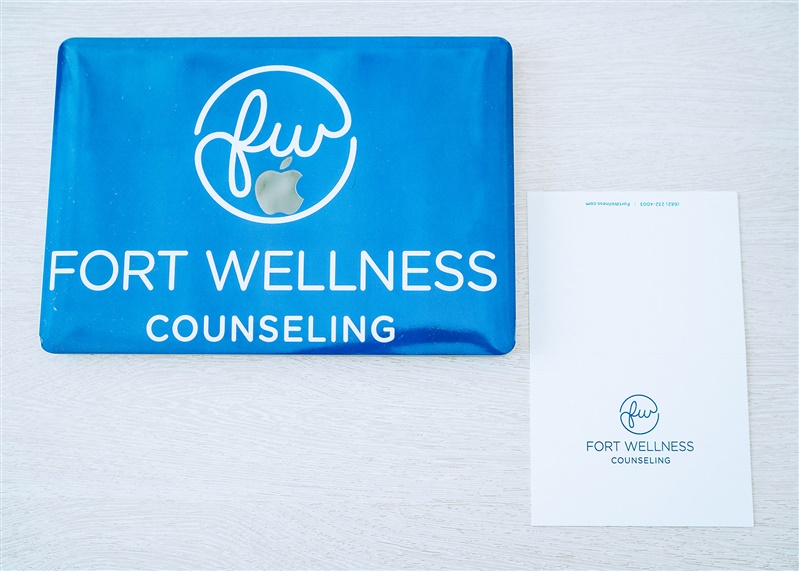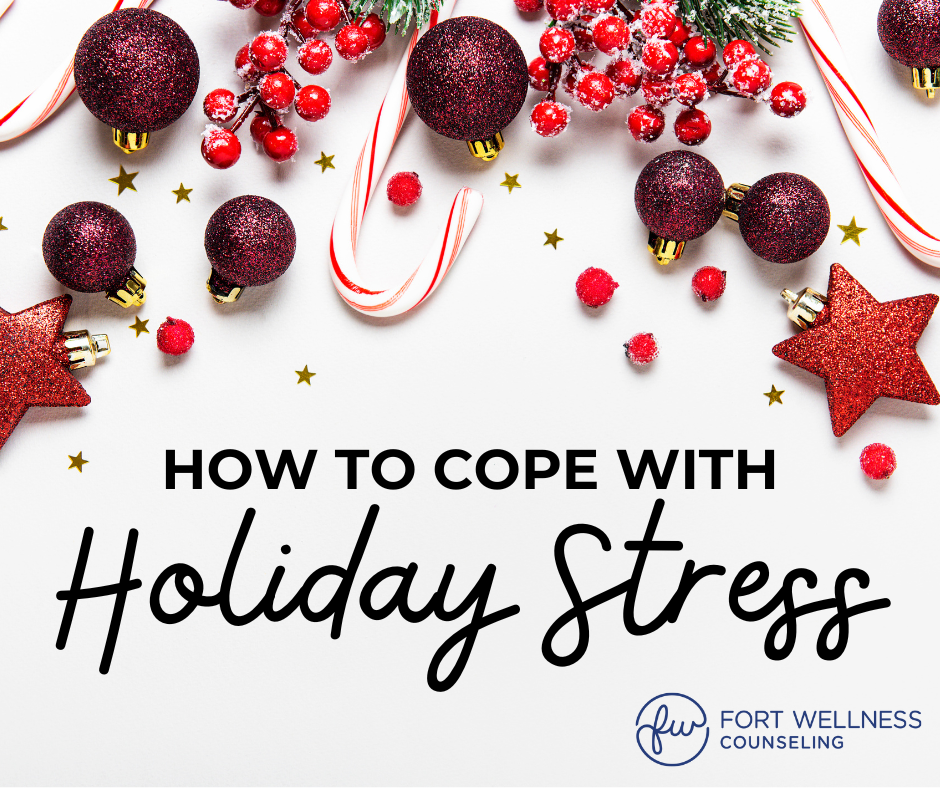
Offering Support After the Texas Hill Country Flooding
Offering Support After the Texas Hill Country Flooding By: Rane Wallace, MS, LPC, LCDC, SAP When tragedy strikes, it comes out of nowhere. And it

Are you wanting to know how to help someone depressed? One of the key elements of friendship is giving and receiving support. Especially when they are depressed or going through a difficult time. But some people struggle with this and do not know how to do it. It’s normal to feel stuck and at a loss for how to help. In this article, I will discuss some of the best strategies for how to help someone depressed so that you can learn ways to be more supportive.
You can become a better friend by learning better ways to support those around you. If you are wanting to know how to help someone depressed, keep this in mind – Support is not about fixing their problem. That is rarely something you can do. It is about accompanying them and showing them that you care. Doing this is more than enough. Below are 8 tips for how you can show some support to someone that is depressed and other mental health related problems, like anxiety.
The first thing to consider is that you should allow your friend to talk first. You just need to focus on listening to them. Do not worry too much about offering advice or solutions. It is ok to be at a loss of words and not know the right thing to say. Try not to overcomplicate it.
Instead, try to listen actively and give the person the opportunity to speak for as long as they need to. Active listening involves paying full attention to the person speaking with verbal and non-verbal signs that you are focused on them. By using active listening, you will let them feel heard.
The temptation is often to make the problem seem like it is less than it is. If you are trying to help someone depressed, you might say “it’s not a big deal” or “it doesn’t matter” or any similar phrase to calm them down. Allow them to show their true emotions. Validate their feelings. Even if you think the issue is not significant, it is clearly upsetting your friend, so validate this experience.
Try to avoid dismissive comments or ideas and show that you empathize with the situation. Let them feel how they feel and to express it safely. Try to avoid these common phrases: others have it worse, it’s not a big deal, let go of the situation, it’s not worth it, I am going through something worse, just forget about it, and so on. Instead, say something like this: “that sucks” or “that is awful.”
We often turn to advice, trying to find solutions to problems when we are trying to be supportive. However, it is often less helpful than expected. Advice can feel unwelcome for various reasons. We might not know the entire context, offer solutions that have been tried before, or use advice to dismiss the problem, so that we don’t have to engage with the person’s emotions. Instead, ask questions. You can also ask them how you can support them.
Encourage the person to tell you more. If you have advice that might truly be helpful, ask them first if they want to hear it and respect what they say. Questions can encourage the person to share more and keep talking.
Want to know another way for how to help someone depressed? You should not lead with advice or solutions because when emotions are intense, these things are less than helpful. Focus on emotional support first. Let the person talk, cry, and say what they want without trying to calm them down.
Offer a shoulder to lean on and don’t judge. When the time is right, they will be more receptive to advice. Remember, timing is key here.
Venting and complaining can be good for a while. But avoid feeding into this behavior. Both of you can get caught in a cycle of complaining. Avoid adding to the negative thoughts and ideas by complaining or venting too. Unfortunately, some people are almost constantly pessimist and can drag your mood down.
When you add to the complaints, it becomes easier to vent more and more. This leads to the person getting more upset rather than calming down. Stay focused on the present and offer your empathy but avoid getting caught up in the negative emotions yourself. Don’t make it all about yourself. Allow your friend to have the stage. Turn your microphone off and turn the volume on theirs up.
It can be very tempting to try and take charge of the situation. You might feel better able to offer a solution or tell your friend what to do, but that’s not a productive strategy. Unless you are asked to take charge specifically, don’t offer directives.
Offer them the support you can give and encourage them to come up with their own solutions. They will always know themself best and be the expert in their life.
We will not always respond in the best way to a friend who needs support. It takes time to learn how to do this, especially since in many situations, we don’t expect finding ourselves in the position to offer emotional support.
You don’t have to be the perfect helper or listener; trying and doing better is enough. If you find that you mess up a situation, it’s good to apologize later or try to learn from the situation. Think about it this way. Most people don’t remember what was said, but how you made them feel.
Have a compassionate attitude. Make an honest effort to help and to understand. Center emotions and consider what your friend might be feeling at that moment. Compassion will help you do the right thing for the time and offer the support that your friend is asking for. Often, it is just being there. Just listen. Just stay present. You don’t need to do anything else. Don’t overcomplicate it.
In conclusion, offering support during a difficult time is a skill. Just like other skills, you can practice and improve upon them. Knowing how to help someone depressed can go a long way. You might have a habit of responding with advice or taking charge. But that is also something that you can work on. Use these skills for supporting someone with depression. Lastly, encourage them to think about whether they should consider attending therapy with a therapist. After all, attending therapy with a counselor has a lot of benefits. Our Fort Worth therapists are here to help you. Learn more about the counseling services we provide for depression.
Do you want to stay up to date on what is new at Fort Wellness Counseling? You can follow us on the social media channels of your choice: Facebook, Instagram, YouTube, LinkedIn.

Offering Support After the Texas Hill Country Flooding By: Rane Wallace, MS, LPC, LCDC, SAP When tragedy strikes, it comes out of nowhere. And it

Family Vacations & Your Mental Peace: Strategies for Stress-Free Summer Travel By: Rane Wallace, MS, LPC, LCDC, SAP Of course, traveling with your family is

Mental Health 101: Debunking Common Myths By: Rane Wallace, MS, LPC, LCDC, SAP Every May, Mental Health Awareness Month raises awareness and advocacy for people

Medical Trauma: Understanding and Healing from Difficult Healthcare Experiences By: Rane Wallace, MS, LPC, LCDC, SAP Over the years, I’ve come to understand that for

Social Media Depression: Beyond FOMO to Algorithm-Induced Mood Change By: Rane Wallace, MS, LPC, LCDC, SAP I’ve seen this happen so many times with patients,

How to Wind Down at Night: Simple Sleep Hygiene Tips By: Rane Wallace, MS, LPC, LCDC, SAP Sleep hygiene might sound like a fancy term,

Pregnancy and Postpartum Anxiety Treatment in Fort Worth By: Rane Wallace, MS, LPC, LCDC, SAP Have you or a loved one experienced anxiety during pregnancy

Breaking the ‘New Year, New Me’ Mindset: A Guide to Sustainable Change By: Rane Wallace, MS, LPC, LCDC, SAP In my years as a therapist,

How to Support a Partner with Chronic Illness: A Mental Health Perspective By: Rane Wallace, MS, LPC, LCDC, SAP Living with a chronic illness can

EMDR for Attachment Issues: Building Healthy Relationships By: Rane Wallace, MS, LPC, LCDC, SAP When you hear “EMDR therapy” (Eye Movement Desensitization and Reprocessing), you

How to Deal with a Narcissistic Partner By: Rane Wallace, MS, LPC, LCDC, SAP Do you ever feel like your partner thinks they’re better than

How to Recover from Burnout By: Rane Wallace, MS, LPC, LCDC, SAP Burnout is a common struggle in today’s fast-paced world. Life’s relentless demands can

The Benefits of Attending Couples Counseling By: Rane Wallace, MS, LPC, LCDC, SAP There’s a misconception about couples counseling – that it signals the end

Things to Know About Individual Counseling in Fort Worth, TX By: Rane Wallace, MS, LPC, LCDC, SAP May is Mental Health Awareness Month, a good

Everything You Need to Know About EMDR Therapy By: Rane Wallace, MS, LPC, LCDC, SAP Have you heard about EMDR therapy and want to learn

What is Nature Therapy? (And Why You Should Be Doing It!) By: Rane Wallace, MS, LPC, LCDC, SAP Let’s face it: there’s just something about

The Benefits of Virtual Therapy in Texas By: Rane Wallace, MS, LPC, LCDC, SAP Technology is changing everything, and healthcare is no different! Thanks to

How to Get Over a Breakup By: Rane Wallace, MS, LPC, LCDC, SAP Breaking up with a romantic partner is painful – no matter the reason

How to Set New Year’s Resolutions By: Rane Wallace, MS, LPC, LCDC, SAP How to Set New Year’s Resolutions Setting goals gives us a sense

How to Cope with Holiday Stress By: Rane Wallace, MS, LPC, LCDC, SAP Say No to Prevent Burnout There are an abundance of obligations that

Trauma Therapy in Fort Worth: Types, Benefits & More By: Rane Wallace, MS, LPC, LCDC, SAP Believe it or not, an estimated 60% of men

How to Communicate Better in Relationships By: Rane Wallace, MS, LPC, LCDC, SAP Whether with coworkers or your significant other, the ability to communicate effectively

How to Prevent Seasonal Affective Disorder (SAD) By: Rane Wallace, MS, LPC, LCDC, SAP If you’re struggling with winter blues, know you’re not alone. SAD

What is a Functioning Alcoholic? By: Rane Wallace, MS, LPC, LCDC, SAP When someone is deemed a ‘high-functioning alcoholic,’ they’re able to carry out daily

How to Help Yourself – And Others – with Suicidal Ideation By: Rane Wallace, MS, LPC, LCDC, SAP September is Suicide Awareness Month. And while

32 Questions to Strengthen Your Relationship By: Rane Wallace, MS, LPC, LCDC, SAP When was the last time you had a meaningful conversation with your

The Fawn Response: How Trauma Can Lead to People Pleasing By: Rane Wallace, MS, LPC, LCDC, SAP Do you often find yourself putting the needs

How to Overcome ‘Hangxiety’ (Post-Drinking Anxiety) By: Rane Wallace, MS, LPC, LCDC, SAP Thought the consequences of drinking heavily were merely physical? Unfortunately, you’ll have

What is Box Breathing? Plus Tips for Beginners By: Rane Wallace, MS, LPC, LCDC, SAP Ever heard of box breathing? This popular relaxation technique involves

Do Mindfulness Exercises for Anxiety Work? By: Rane Wallace, MS, LPC, LCDC, SAP Do mindfulness exercises for anxiety work? If you (or people in your

What is Trauma Bonding? 4 Warning Signs By: Rane Wallace, MS, LPC, LCDC, SAP If you’ve ever been in an abusive relationship and felt bonded

Why Do We Cry? 4 Reasons and Crying Benefits By: Rane Wallace, MS, LPC, LCDC, SAP There’s no getting around it – crying is part

What Is Habit Stacking? (And How to Do It) By: Rane Wallace, MS, LPC, LCDC, SAP Supporting our mental health is one of those goals

5 Tips for Living with Someone with OCD By: Rane Wallace, MS, LPC, LCDC, SAP While living with OCD (obsessive-compulsive disorder) can be demanding, living

What is Assertive Communication? By: Rane Wallace, MS, LPC, LCDC, SAP So, what is assertive communication? Well, in a nutshell, this communication style aims to

PTSD Counseling in Fort Worth: Proven Coping Strategies By: Rane Wallace, MS, LPC, LCDC, SAP For those who didn’t already know, post-traumatic stress disorder (PTSD)

Brainspotting vs. EMDR: What’s the Difference? By: Rane Wallace, MS, LPC, LCDC, SAP According to the National Council for Mental Wellbeing, 70% of American adults

Mindfulness Exercises to Strengthen Your Recovery By: Rane Wallace, MS, LPC, LCDC, SAP Are you recovering from alcohol and/or substance abuse? Self-improvement is a life-long

How to Find a Counselor in Fort Worth By: Rane Wallace, MS, LPC, LCDC, SAP Are you considering therapy? If so, finding a counselor in

How To Not Be Codependent In A Relationship By: Rane Wallace, MS, LPC, LCDC, SAP Wondering how to not be codependent in a relationship? Sometimes

What is Parental Anxiety? Coping Tips from a Therapist By: Rane Wallace, MS, LPC, LCDC, SAP Every parent wants to shield their child from danger

What is EMDR Therapy? By: Rane Wallace, MS, LPC, LCDC, SAP Ever heard of eye movement desensitization and reprocessing therapy? More commonly known as EMDR,

8 Proven Tips to Sleep Better at Night (and Improve Your Mental Health) By: Rane Wallace, MS, LPC, LCDC, SAP Struggling with restless nights and

How to Have a Healthy Relationship with Social Media By: Rane Wallace, MS, LPC, LCDC, SAP In today’s world, there’s no escaping the presence of

What Is The Goal of Psychotherapy? By: Rane Wallace, MS, LPC, LCDC, SAP Have you been considering psychotherapy? The start of a new year is